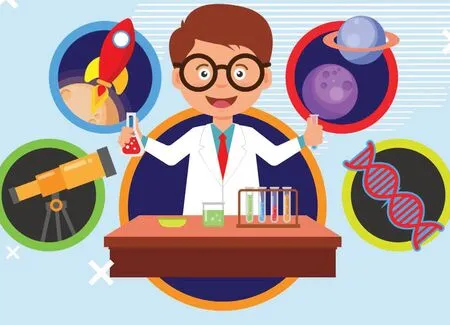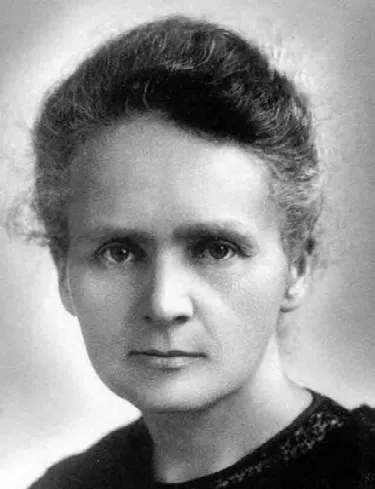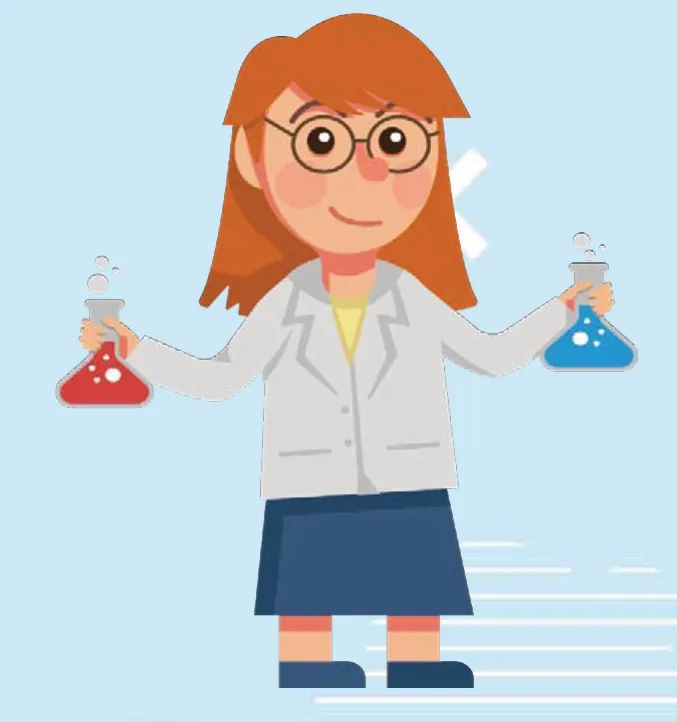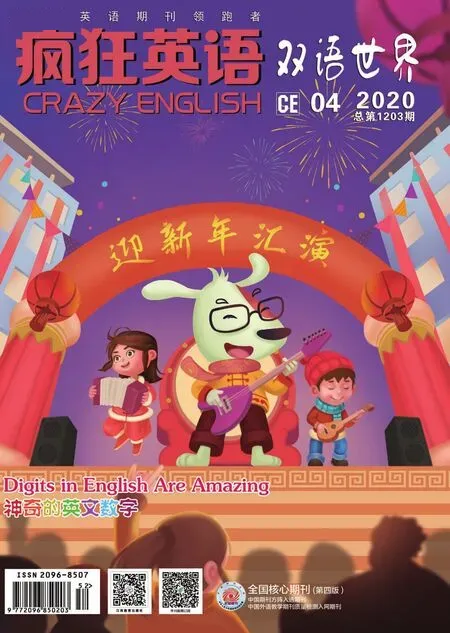How Can You Study the Subject Science Well?
2020-04-26河南郑州市惠济区实验小学
河南郑州市惠济区实验小学 侯 洁
Almost all the teachers of sciencedesiretheir students to developenquiring mindsand apositive attitudefor exploring andinterpretingthe environment.Most of the primary students are interested in learning science,as science is not only fun,but also amazing sometimes.However,how can you learn the subject Science well? You need to know the aims of this subject first.
几乎所有的科学教师都希望他们的学生发展质疑思维和积极态度,来探索和解释身边的事物。大多数小学生都对学习科学感兴趣,因为科学不仅有趣,有时也很神奇。然而,怎样才能学好科学这门学科呢?你需要先知道这门课的目标。

I.The aims of the subject Science
一、科学这门学科的目标
The aims of the subject Science are to ensure:
1.students enjoy science and develop their skills at their own rate within a safe environment.
科学这门学科的目标就是确保:
1.学生喜欢科学,在安全的环境中以自己的节奏发展自己的技能。
2.theacquisitionoffactual knowledge,concepts,skills and attitudes which can have both a present and a futureinfluenceon a student’s ability to cope with the environment.
2.获得事实性知识、概念、技能和态度,这些知识、概念、技能和态度可以对学生应对环境的能力产生当下和未来的影响。
3.interesting,exciting and relevant experiences are presented in order togeneratealifelonginterest in the environment and developaesthetic awareness.
3.获得有趣的、令人兴奋的和有关联的体验,以激发对周边事物的终身兴趣,培养审美意识。
4.students become scientificallyliterateso they areequippedto make informed andresponsibledecisions.
4.学生具备科学素养,能够做出明智的和负责任的决策。
5.that science educationempowersstudents in adynamicworld enabling them to manage andinitiatechange.
5.科学教育增强学生在这千变万化的世界中的能力,使他们能够管理和开始尝试变革。
6.Students are reported against their scientific knowledge and understanding,recognizingscience as a humanendeavourandspecificskills andprocessesused during science,such asdiagramsandgraphs,reports,hypothesisandpredictingsolutions.Students also learn about thefairnessof testing and safe procedures when completing experiments.
6.学生们与他们的科学知识和理解产生冲突,认识到作为人类的努力和人类的特殊技能与进程的科学在科学实践中得到应用,如图表、报告、假设和预测解决方案。当学生们完成实验时,还会了解到测试的公正性和程序的安全性。
II.The three strands of the subject Science
There are threeinterrelatedstrands to be taught:
二、科学学科的三个方面
科学学科有三个相互关联的方面要教给学生:
●understanding physical sciences,chemical sciences,biological sciences,geographical sciences,space sciences,environment sciences and environment protection;
● 理解物理科学、化学科学、生物科学、地理科学、空间科学、环境科学和环境保护;
● Science as a human endeavour,incorporating the nature and development of science,its use and influence;
● 科学作为人类奋斗的成果,包括科学的性质和发展、科学的应用和影响;

●Scienceinquiryskills-questioning and predicting,planning and conducting,processing andanalyzing data,evaluatingand communicating.
● 科学探究技能——提出问题和预测结果、制订计划和执行计划、处理数据和分析数据、评价和交流。
Together,the three strands of the subject Science provide students with understanding,knowledge and skills through which they can develop a scientific view of the world.Students are challenged to explore science,its concepts,nature and uses through clearly described inquiry processes.
这三个方面共同为学生提供了理解、知识和技能,通过这些知识和技能,他们可以形成科学的世界观。学生们在通过清晰描述探究过程来探索科学、科学的概念、性质和用途方面面临挑战。
III.Approaches to learn the subject Science well
Almost all the experienced Science teachers believe that the following approaches are efficient for students to learn the Science well.
三、学好科学这门学科的途径
几乎所有有经验的科学教师都认为,以下方法对学生学好科学这门学科是有效的。
1.Be interested
Find out their termly topics (most schools will provide this information each term,or you can always ask your teacher)and take an interest -find relevant books in the school library or bookshops,do some research,brush up your own knowledge about the topic! Then you can have interesting conversations where you are both learning at the same time.
1.产生兴趣
找出他们的学期主题(大多数学校每学期都会提供这方面的信息,或者你可以随时问你们的老师)并对其感兴趣——在学校图书馆或书店找到相关书籍,做一些研究,复习一下你自己关于这个主题的知识!然后,当你和同学们同时都在学习这方面的科学时,你们可以进行有趣的对话。
2.Take a trip
Why not take a trip to a science museum,a zoo or anaquarium? These don’t necessarily need to be completelyrelated towhat you are learning about at school.Any visit can help yourcuriosityandengagementwith science generally.

2.开展旅行
为什么不去科学博物馆、动物园或者水族馆走一趟呢?这些不一定要和你在学校学到的知识完全相关。任何参观都可以有助于你产生好奇和增进对科学的一般了解。
3.Make it personal
Find out about famous scientists and researchuniqueand exciting inventions up to and including the present day.Who knows,you may have the nextThomas EdisonorMarie Curieat home!

3.使之个性化
了解到目前为止的一些著名科学家、独特研究和令人兴奋的发明(包括今天)。说不定下一个托马斯·爱迪生或玛丽·居里可能就是你呢!
4.Get hands-on
Look up fun,practical science experiments you can do at home with everyday objects.
4.亲自动手
找一些你可以在家里用生活用品就可以做的有趣的、实用的科学实验。
For example:
Ask“What happens when you mix food colouring in milk?”Then add washing up liquid and watch what happens.Also,youmay get to know whether hot water and cold water mix at once by colouring hot water and pouring it into a glass in which there is cold water.

例如:
提出问题:“当你在牛奶中混合食用色素时会发生什么?”然后,往牛奶中加入洗涤液,观察会发生什么。另外,你可以通过给热水上色并把它倒进有冷水的玻璃杯里,来弄明白热水和冷水是否混合。
Why not try making your own mini explodingvolcano? Just addbicarbonateofsoda,food colouring,washing up liquid and vinegar.Then stand back and watch the eruption!
为什么不试着自己做一个小型火山喷发呢?只需加入碳酸氢钠、食用色素、洗涤液和醋。然后,你就退后看火山喷发吧!
Cooking is also a great opportunity to mixingredients,add heat andexaminechanging states.
烹饪也是一个很好的机会来混合原料和加热过程,也是一个绝佳的观察原料状态变化的机会。
Try exploring changing states with ice and water to begin to see those changes that can bereversedand those that can’t.
尝试用冰和水探索变化的状态,开始看到那些可以逆转的变化和那些不可逆转的变化。
A real favourite would have to be“gloop”— use water andcornflour(add food colouring too if needed) to explore solids and liquids.Just be prepared toget messy!
最受欢迎的应该是“黏稠物”——用水和玉米粉(如果需要,还可以添加食用色素)来探索固体和液体。要有把东西弄得一团糟的思想准备!
Of course,there are also some wonderful sciencekitsavailable to buy to push your scientists further– makingcrystals,rocketsand evenbouncy balls.
当然,也有一些很好方便购买的科学工具,以进一步推动你成为科学家——制造晶体、火箭和弹力球。
Anything where you can behands-onand see the science happen in front of their eyes isguaranteedto be get them interested.
任何眼前你可以亲自动手、亲眼看到发生的科学现象,都能让你产生兴趣。
Notes:
desire v.想要;需求
enquiring minds 质疑意识
positive attitude 积极的态度
interpret v.解释
acquisition n习得
factual knowledge 事实性知识
concept n.概念
influence n.影响
generate v.生成;产生
lifelong adj.终身的
aesthetic adj.审美的
awarenes v.意识
literate adj.有文化的
equip v.武装;配备
responsible adj.负责任的
empower v.给以力量
dynamic adj. 动态的
initiate v.启动
recognize v.认识到
endeavour n.努力
specific adj.特别的;特殊的
process n.进程
diagram n.图表
graph n.表;图表
hypothesis n.假设
predict v.预测
fairness n.客观;公正
strand n.方面
interrelated adj.相互关联的
inquiry n.质疑
analyze data 数据分析
evaluate v.评估;评价
termly adj.定期的
topic n.主题;话题
aquarium n.水族馆
related to 与……有关联
curiosity n.好奇心
engagement 对……的了解
unique adj.特别的;有个性的
Thomas Edison 【人名】托马斯·爱迪生
Marie Curie 【人名】玛利亚·居里
volcano n.火山
bicarbonate n.碳酸氢盐
soda n.苏打
ingredient n.原料;要素
reverse v.颠倒
gloop n.糊状物
cornflour n.玉米糊
get messy 弄得一团糟
kit n.日用品
crystal n.晶体
rocket n.火箭
bouncy ball 弹力球
hands-on n.动手(做事)
guarantee v.保证
